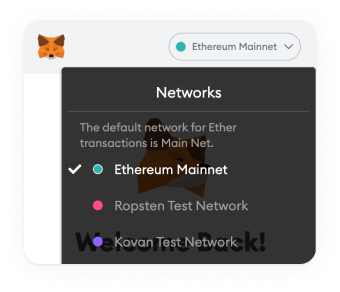Business White Paper (Mass Market Release) This last and final white paper will present the main content of the first three white papers to mainstream audiences in a less technical, condensed way. This article will accompany the official release of the public version of mainnet. Therefore, this white paper aims to provide an easy-to-understand overall explanation of Shift, and for this purpose will include enhanced visuals and full use of infographics.
Financial White Paper (release date TBD) This article will present the academic results of our research collaboration used to develop Shift's Smart Tokenology service model, including the methodology used and the economic outcomes that our finalized parameter values will produce. The target audience for this article includes hosts of delegating and storage nodes, as it will provide these people with the tools needed to calculate the potential rewards that can be generated by hosting nodes. Our goal is to provide transparency of all fees for all mechanisms involved in the network.
Technical White Paper (release date to be determined) The technical white paper is for developers. Its content will be closer to the Blue Book, a very technical description of what Shift does, i.e. including all the technical details of our platform. This white paper will be released at an appropriate time during the beta phase of the Shift platform.
The use of the IPFS storage layer will be governed by the blockchain technology. Shift IPFS clusters must integrate with Phantom's sidechain.
New Shift Core: New Consensus Algorithm A new consensus algorithm is being researched. When we are satisfied with the results of our research, the new consensus algorithm and the motivation for its development will be clarified in a special white paper dedicated to this topic.
Improved Shift Chain Lisk addressing format has a problem: when creating an address, the output character length is random. As a result, the character count of the wallet address can vary without any control number. Although all wallet addresses end in the letter S, this variability can sometimes lead users to accidentally send Shift tokens to non-existent addresses. Therefore, we will implement the high-definition wallet BIP address standard used by Bitcoin. Furthermore, this address format has huge advantages over the format that Lisk allows to implement input validation. Currently, PostgreSQL storage saves the Lisk address format. This is undesirable because the address criteria are never allowed to change without the need for a hard fork. Saving all transactions made with the public key will allow users to change their wallet addresses. Saving the public key instead of the address also has the advantage of making it nearly impossible to force the use of the wallet address. While brute force can be prevented by having one's wallet broadcast at least 1 outgoing transaction, it is better to use the public key in the database rather than the address, as this almost completely eliminates the dangers of standard brute force in all cases. Since neither implementation is backward compatible with current blockchains, a complete new chain (hard fork) is required to implement this solution. So the old chain will stop and all account balances will be transferred to the new chain. It has not yet been determined whether these changes will be implemented before the new core, or if it will be implemented with the introduction of the new core.
Decentralized Cluster Consensus Our development team has been thinking about possible approaches that are completely decentralized yet protect the cluster from bad actors. A particularly strong candidate model is currently being explored in depth.
Launch of six-month public awareness plan The campaign to boost adoption is now planning a six-month calendar as a growth team is built to raise awareness of market shifts. We publish curated details of our team's plans and activities for sharing and discussion within the community and are expected to showcase the combined efforts of our internal staff and our team's external partners.
Cross-chain automation The ability to perform cross-chain transfers between chains is one of the “holy grail” features sought in crypto: it enables decentralized automation and eliminates the need for a middleman. For Shift, this feature is needed to ensure a healthy, economical ecosystem for the main chain and sidechains.
Growing Public Awareness After the Phantom prototype has been fully tested in public, we will use various methods to attract new users to the Shift platform so that the mainnet version may appear on the many clients already lined up for paid hosting. Further details will be announced.
Nano Wallet Update v2.0.0 The update of the current Nano Wallet will adapt to the changes taking place in Q2.
Sidechain Explorer will add Phantom sidechains to view in the existing testnet explorer.
Live cluster communication Now, clusters can only store static content and do not support communication between nodes. Real-time cluster communication will be a notable achievement of decentralization: it is a prerequisite for supporting real-time applications such as real-time chat or multiplayer games on the cluster. Therefore, we are researching and conceptualizing decentralized ways to support real-time communication between nodes, and are deciding whether to do this using IPFS pubsub or traditional websockets.
Hydra Decentralized CMS: Beta version Hydra is a custom IPFS compliant content management system (CMS) that provides a storage solution for dynamic data. This component is included in Shift for easy and user friendly web development on our platform. Our own website is created with the help of this CMS.
Phantom dApp User Interface For mass adoption, a Phantom dApp must have an intuitive, easily accessible user interface.
Post an introductory business white paper The Getting Started Business White Paper will explain Shift's business development strategy, including expanded details on growth, PR and partnership projects in 2018. This white paper aims to convey Shift's value proposition and its goals in non-technical language that is easy to understand. normal consumer. This white paper partially overlaps with the full commercial white paper planned to be released in the future, but the main difference is that the introductory commercial white paper aims to present a broad overview with some examples and how Shift will grow market awareness and awareness in 2018 before we release the final product for Phantom. use. As such, this white paper contains a forward-looking preview of Shift's growth trajectory, while highlighting some selected business development measures.
The fully stable sidechain Phantom dApp runs on its own sidechain that runs in sync with the mainchain (i.e. has the same 27 second block time). The stability of the chain will be fully tested before we use the main chain for atomic swaps. This will ensure that the use of storage layers controlled using blockchain technology does not negatively impact the stability of the main chain.
One of the advantages of blocking the reward sector to the project wallet Shift is that it uses a completely fair token distribution model. Increasing development funding in a way that maintains this edge can help Shift stay ahead of the competition and maintain the organizational and public awareness activities necessary to become a market leader. The shift team also subsidizes the workforce of its junior development and organization staff with wages, and we plan to hire more developers. To support the growth of the project, we therefore seek consensus to keep 0.1 SHIFT from every 1.1 block reward forged. Since this requires consensus from the network, the shift team understands the need for transparency and should provide information on the planned use of this funding.
Hydra Decentralized CMS: Pre-release Hydra is a custom IPFS compliant Content Management System (CMS) that provides a storage solution for dynamic data. This component is included in Shift for easy and user friendly web development on our platform. Our own website is created with the help of this CMS.
Storage Cluster Optimization Since the launch of the first Shift IPFS cluster in December 2017, we have been vigorously testing the stability and potential of the cluster. Our tests found bugs that we wanted to improve. These bugs have been fixed with the new cluster we rolled out, and we've also implemented custom routing/redirects for hosting websites, which is a historically preferred option for IPFS as it doesn't provide any way to do this out of the box.
Improvements to the Shift website Following the rollout of functional storage clusters and Shift's current website, we provided a proof-of-concept demonstrating the capabilities of the IPFS network. The Shift Project's website will now be transformed in partnership with world-class agencies to effectively communicate Shift's value proposition to the public, increase community engagement by increasing Shift's social media presence, and provide consumer and enterprise-grade use cases based on Shift An up-to-date overview of . Recent development breakthroughs. Additionally, recent improvements to Hydra will see our revamped website include an optimized SEO architecture, and we will greatly expand and refine our collection of Shift user guides, making the process of using wallets, voting, and more very user-friendly for new Shift holders. someone.
The first introductory white paper in introductory white paper (four) will be the first of four white papers, each aimed at a different audience. The scope of this article will include the purpose of Shift and our technical vision, while providing basic information about Shift's technical achievements.
Proof of Concept: New Transformation Website With the launch of the storage cluster, we wanted to demonstrate the capabilities of the IPFS network. Therefore, we redesigned the Shift project's website and hosted it on the Shift IPFS cluster as a proof-of-concept. This working prototype is the first example of a decentralized dynamic website hosted on IPFS with a true top-level domain that can be viewed without requiring users to install any browser plugins or extensions.
See More














